If you are considering moving to Venezuela, there are a few things you should know about this country.
This country in the northern part of South America is a rich, diverse land with a fascinating culture.
But it is also struggling with government breakdowns that have affected democracy, crime rates, and prosperity.
Living in Venezuela can be challenging but rewarding.
Here are the top things you should know!
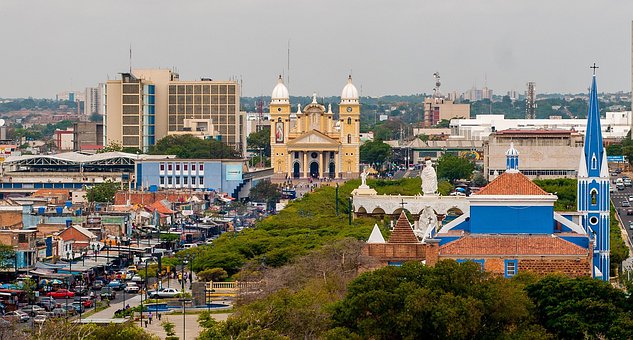
Contents
Pros of Living in Venezuela
1. Cost of Living is Extremely Low
The cost of living in Venezuela is extremely low, with some estimates putting it at roughly 40 percent lower than the United States national average.
Housing and rental prices are particularly low, and it is common for people to pay roughly $400 a month for rent.
However, Venezuela also experiences regular shifts due to inflation, so it is common for prices to become drastically cheaper or more expensive in a short period.
2. Utilities are Affordable
Utilities in Venezuela are also highly affordable.
Even in larger cities like Caracas, you can expect to pay between $10 and $15 a month for all your utilities.
That includes water, power, heating and cooling, and garbage pickup.
Internet is generally not included in this, and you will need to pay separately to have access to a router and Wi-Fi.
3. The Weather is Warm All Year
Venezuela is located just eight degrees above the equator.
That means that it has a tropical climate, with temperatures that are generally warm and humid throughout the year.
In fact, there is not a lot of variation throughout the year.
Temperatures tend to stay steadily between the high 70s and low 80s.
In the Andes Mountains, the weather can get cooler, dipping into the high 40s in the cool season.
4. Education is Good
Education in Venezuela is generally very good, and the country boasts high literacy rates.
There is free public education throughout primary school, which goes from ages 5 to 15, for a total of nine years.
This means that Venezuelan children end their education several years earlier than the rest of the world, at which point they may pursue higher education or join the workforce.
Primary education is compulsory throughout the country.
5. The Food is Delicious
Venezuelan culture is a diverse mixture of indigenous, European, and African cultures.
There is Caribbean influence to the west.
This wonderful diversity affects many parts of the culture, but it is especially reflected in the food!
Venezuelan food is delicious, focusing heavily on produce and cultural fusion.
You will want to try traditional dishes such as pabellon criollo (a dish of rice, beans, plantains, and beef), tequenos (cheese rolls served as a snack or appetizer), and dulce de lechosa (a caramel-based dessert with papaya).
6. The Scenery is Stunning
Venezuela is full of breathtaking natural scenery, and it is completely different from region to region.
The country borders the Caribbean to the north, the Amazon River basin to the south, and the Andes Mountains.
You’ll also find the Orinoco River delta in the eastern part of the country.
It is a place where you can see breathtaking mountain vistas, tropical rainforests, sandy beaches, and grassy plains.
Seventy-three percent of Venezuelans live less than 100 km from the ocean!
7. The Ecosystem is Diverse
Venezuela’s huge variety of biomes means that it is home to one of the most stunningly diverse ecosystems on the planet.
In fact, the country is one of the few that has been classified as a megadiverse.
Between the tropical climate, the lush rainforest, many beaches and rivers, and mountains, Venezuela is home to countless animal and plant species, some of which are exceedingly rare.
Among many others, you will find capybaras, jaguars, howler monkeys, and giant anteaters.
8. The Culture is Amazing
Venezuela is the very definition of cultural fusion.
It has influences from European cultures, most notably Spain, as well as indigenous and West African cultures.
As a result, Venezuela is a rich and diverse place with many fascinating traditions.
Many travelers say they find the people warm and welcoming and mention Venezuelan music as particularly fun and interesting.
Cons of Living in Venezuela
1. It’s Dangerous
Venezuela can be a dangerous place, particularly in cities such as Caracas and Maracaibo.
In fact, political instability, police corruption, lack of gun control, and a dismantled legal system have catapulted Venezuela’s crime index to 83.76, the highest on the planet.
As of 2022, the US Department of State recommends that Americans avoid traveling to Venezuela especially due to its high rate of violent crime such as homicide.
2. Food Shortages are Common
Recent years have brought significant food shortages to Venezuela, prompting more than six million people to leave the country.
These are the result of many factors, including government inaction and price control.
Food shortages have impacted crime and poverty levels, with millions of Venezuelans suffering from food insecurity.
Recent statistics indicated that up to 93 percent of Venezuelans could not afford to buy food, and at least a million children had missed school because they were hungry.
3. The Internet is Slow
Venezuelan infrastructure is notoriously poor, which affects access to the internet among many other utilities.
Those who have access to the internet have to deal with the slowest speed in Latin America and one of the slowest speeds in the world.
As a result, communication and work-from-home opportunities are limited.
Many Venezuelans use the internet to share resources and ask for help.
4. There is Government Instability
Government instability in Venezuela has been ongoing for more than 30 years, affecting every aspect of life in the country.
Widespread corruption among authorities has increased shortages of Venezuelans while denying them aid.
Mismanagement of resources and suppression of rights such as free speech has also affected the daily lives of Venezuelans, leading to widespread mistrust of authority.
As much as 75 percent of Venezuelans say they believe their government is corrupt.
5. Transport is Bad
Transportation in Venezuela is notoriously bad.
It is estimated that only a third of the roads in the country are paved, making driving by car difficult and dangerous.
Similarly, as much as 80 percent of the public transportation in the country, including buses and trains, were not working as of 2019.
Despite these issues, traveling by car in Venezuela is highly affordable; the country has some of the lowest gas prices in the world.
6. Hospitals Aren’t Always Accessible or Safe
Healthcare in Venezuela is very much a mixed bag.
While medical treatment is free to everyone, standards of care can vary widely from place to place.
The COVID-19 pandemic further affected the already-failing infrastructure of Venezuelan medical facilities.
Public hospitals often lack medications or have severely outdated equipment; visitors may also find that the standard of hygiene is not what they are used to.
Specialized or extended care might require leaving the country.
7. Summers Can be Brutally Hot
While most places in Venezuela remain fairly steady in temperature throughout the year, the country is a tropical climate that is close to the equator.
That means that there are places, especially in the south of the country near the Amazon River basin, where summer temperatures can get quite high.
Humidity levels are also consistently high throughout the year, usually between 80 and 85 percent.
Combined with higher summer temps, this can be difficult for visitors to bear.
8. Power Outages are Common
In 2019, Venezuela experienced one of the worst power outages in its history.
Almost the entire country was without power, some areas for up to three days at a time.
Since then, the country’s failing electrical system has continued to experience periodic blackouts.
Some Venezuelans deal with losing power on a daily basis.
This ongoing problem has affected communications, medical care, and access to water for millions of people.
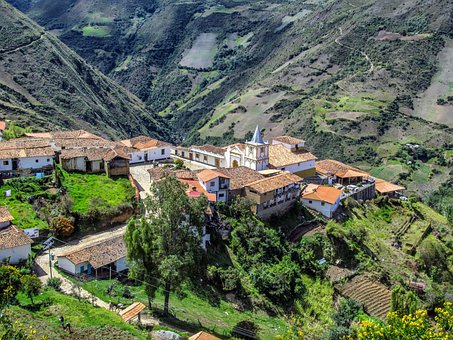
Pros and Cons of Living in Venezuela – Summary Table
| Pros of Living in Venezuela | Cons of Living in Venezuela |
|---|---|
| 1. Cost of Living is Extremely Low | 1. It’s Dangerous |
| 2. Utilities are Affordable | 2. Food Shortages are Common |
| 3. The Weather is Warm All Year | 3. The Internet is Slow |
| 4. Education is Good | 4. There is Government Instability |
| 5. The Food is Delicious | 5. Transport is Bad |
| 6. The Scenery is Stunning | 6. Hospitals Aren’t Always Accessible or Safe |
| 7. The Ecosystem is Diverse | 7. Summers Can be Brutally Hot |
| 8. The Culture is Amazing | 8. Power Outages are Common |
Venezuela Safety Overview
READ THE FULL REPORT: Venezuela Safety Review
Safety Index:
- OVERALL RISK: HIGH
- TRANSPORT & TAXIS RISK: MEDIUM
- PICKPOCKETS RISK: HIGH
- NATURAL DISASTERS RISK: MEDIUM
- MUGGING RISK: MEDIUM
- TERRORISM RISK: HIGH
- SCAMS RISK: MEDIUM
- WOMEN TRAVELERS RISK: MEDIUM
Frequently Asked Questions
What are the Living Conditions in Venezuela?
Living conditions in Venezuela are difficult for many people.
Up to 93 percent of Venezuelans say they cannot afford food, while at least a million children have missed school because of hunger.
Access to electricity is not a given and continues to affect daily life.
In 2021, more than 76 percent of Venezuelans lived in extreme poverty.
Is There a Drug Problem in Venezuela?
Venezuela has recently earned a reputation as a narco-state.
This is because some Venezuelan politicians have been linked to drug cartels across the country.
Venezuela has been a channel for drug trafficking to the United States for several decades.
Cocaine is a particular problem across the country, including unrefined street cocaine that can be extremely dangerous.
What Should I Avoid in Venezuela?
If you decide to visit Venezuela, there are a few things to avoid.
Do not prominently display or wear valuables such as jewelry or electronics.
Avoid visiting barrios (slum neighborhoods) or taking public transportation.
If you plan to take a taxi, call for one ahead of time — never hail a cab in the street.
How Much Money do I Need to Live in Venezuela?
Living in Venezuela is quite cheap, much cheaper than living in the United States.
On average, a single person needs about $527 a month to live, as well as rent money.
The cost of living in Venezuela is, on average, about 40 percent lower than the national average across the US.
Can Foreigners Live in Venezuela?
Culturally, people in Venezuela are very welcoming of foreigners.
However, the US Department of State recommends that Americans do not travel to Venezuela due to the instability of the region, particularly the lack of access to basic necessities and the high rates of violent crime.
This recommendation elevated Venezuela to a Level 4 country, the highest advisory level.
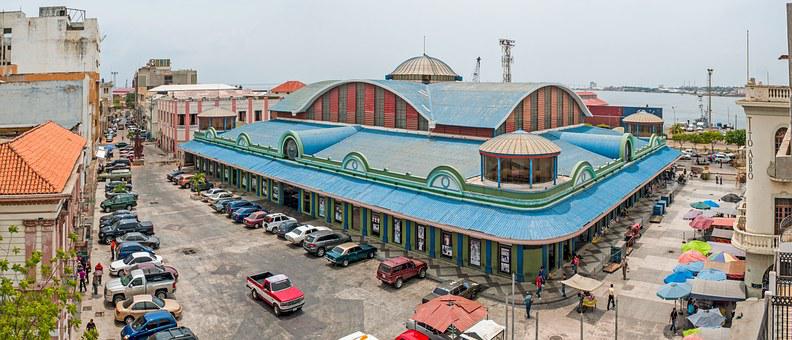
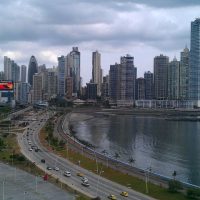
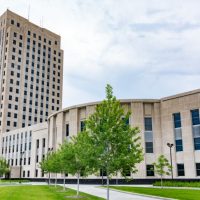
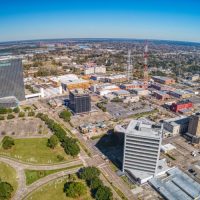

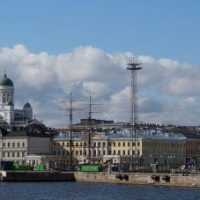






My points on this (as a Venezuelan)
-The School system isn’t really that good. It took me alost 6 years to pass indergarten (in Venezuela there are levels to preschool/Kindergarten, Nursery (3 years) Preschool (3-5 years) and Kindergarten (2 years) The elemeantry school I went to was pretty bad too.
– I agree with the outage thing. I have some relatives in Puerto De La Cruz, and they are cureentley dealing with bad internet as well as power outages (I always ask my aunt if I can call her)
– The food shortage thing is true. In fact, it is worst if you’re a Venezuelan person living in the USA (like my family). Buying Venezuelan food off International/Hispanic food stores as well as Venezuelan restaurants is really expensive. We make our own food at home’
– The hospital thing is also really true. Once I was 7 and when I went to a hospital because I was really sick, I had to try some Medicine made in Venezuela. It was really bad.
It is my 5th year in America, and I feel really bad for what venezuelans go throught
Your comment makes me think that you are already 8 now?
Venezuelan people are nice, and caring, those not involved in crime. The women, truly beautiful. I visited Caracas in the 1980s, I was awe struct by their mannerisms, caring attitudes. I am single again, not by choice. If I have the opportunity to date and possibly marry a Venezuelan lady, I will. We cowboys deserve the best women.
I think some of what was listed as “bad” is not true. It is true that they paved roads are not in the best condition. But Venezuela has well over 95% of its roads paved and “drivable”. And that is still the case with only a few exceptions.
Also hostpitals are much better now than say 2 years ago. And the “brutally hot” summer also not true. There are brutally hot locations and specific places though